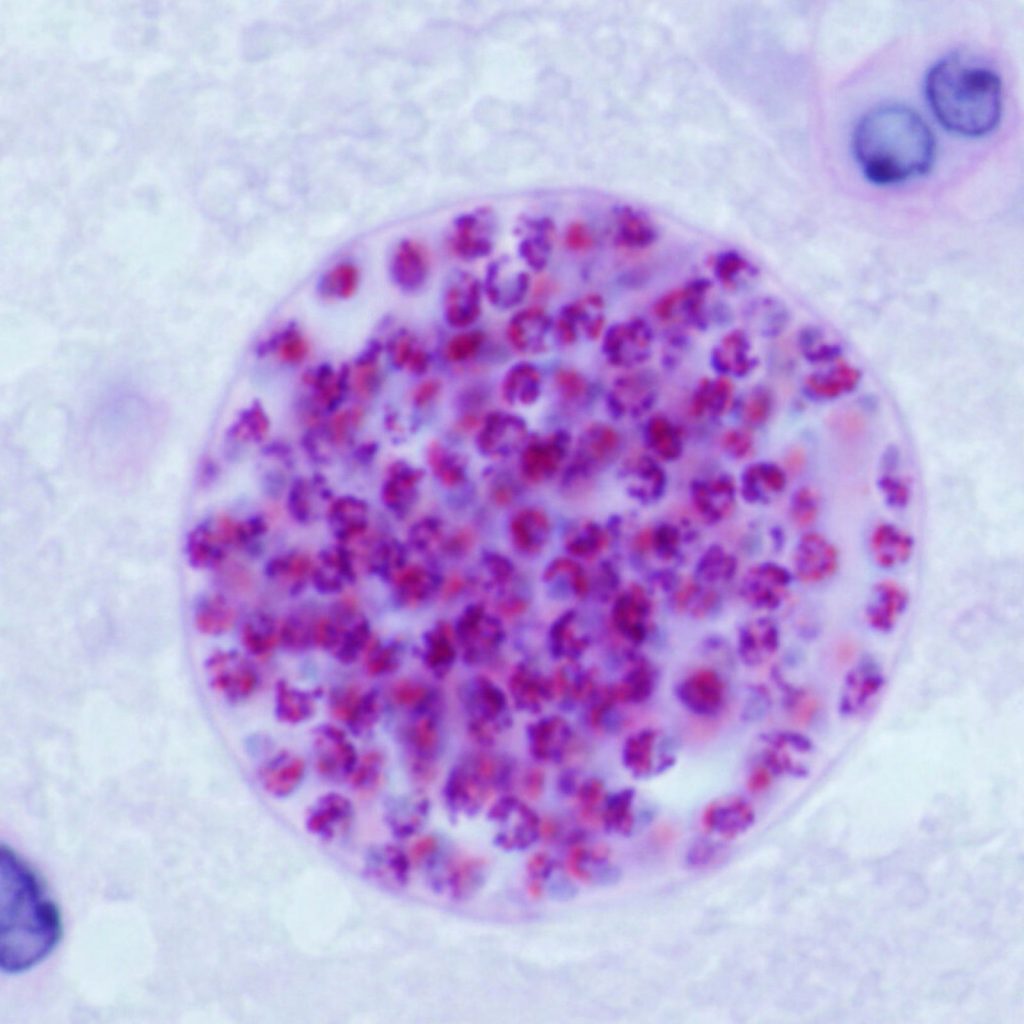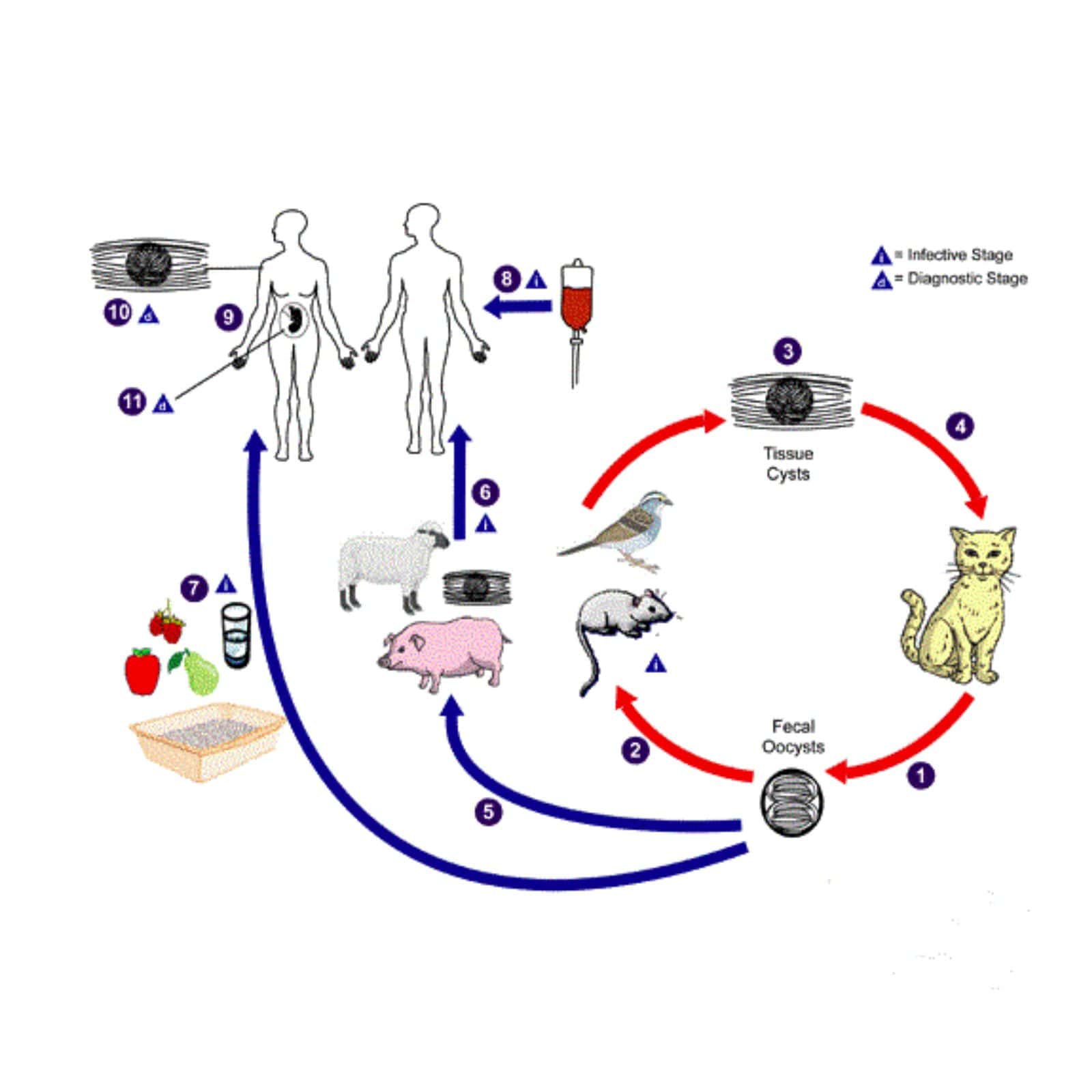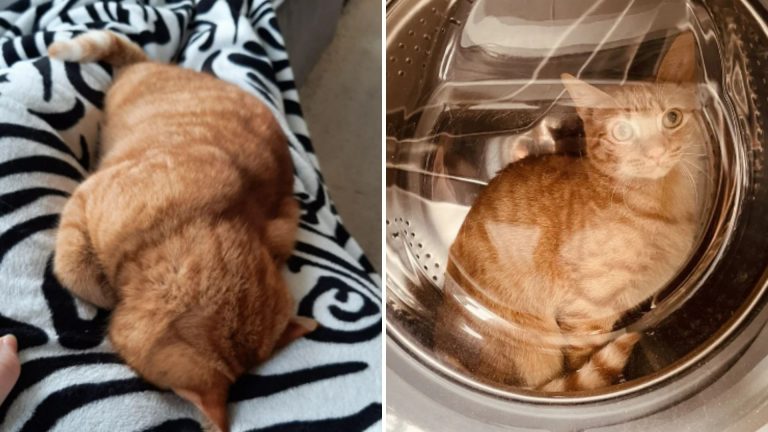Groundbreaking Study Reveals How A Feline Parasite Could Cause Frailty In Seniors

Ever heard about the infamous parasite whose main carriers are our beloved feline companions?
Yup, you read that right! A recent study conducted by an international team of researchers revealed that a cat parasite, known as Toxoplasma gondii, might be linked to increased frailty in older adults.
Frailty is an umbrella term that encompasses a wide array of symptoms, such as lethargy, unintentional weight loss, decline in cognitive sharpness, susceptibility to illnesses, and others.
It’s a quite common issue that affects the quality of life of many seniors, and surprisingly, it can start as early as 40 years old.
Now, before you pack your fluff’s bags and kick her out of your house, let’s find out what that research was actually about and what you can do to protect yourself and your kitty.
The Gist Of The Research
The research in question was published in the Journal of Gerontology: Medical Science.
Its authors suggested that a tiny single-celled parasite called Toxoplasma gondii has a great impact on human health and contributes to frailty in older generations.

Christopher Lowry, co-author and a professor in the Department of Integrative Physiology at CU Boulder, shared:
“We often think of T. gondii infection as relatively asymptomatic, but this study highlights that for some people it may have significant health consequences later on.”
Generally speaking, this parasite causes Toxoplasmosis, a number one foodborne illness, infecting between 11 and 15 percent of people in the United States.
People can get infected with it by eating undercooked or contaminated meat (especially pork, lamb, and venison) and shellfish.
For this study, the researchers examined blood samples of 601 adults over the age of 65. They were searching for symptoms of geriatric frailty and markers in the blood that indicated previous infection with Toxoplasma gondii.

Interestingly, 67 percent of the study participants showed positive markers in their blood, indicating a latent infection.
Despite the researchers’ initial hypothesis, they didn’t find a direct correlation between Toxoplasma gondii and geriatric frailty.
However, their research did reveal that individuals with a higher concentration of antibodies to the parasite were notably more prone to frailty and showed higher levels of inflammation that generally occur with aging.
Blanca Laffon, another co-author and a professor of psychobiology at the Interdisciplinary Centre of Chemistry and Biology at the University of A Coruña said:
“This paper is important because it provides, for the first time, evidence of the existence of a link between frailty in older adults and intensity of the response to T. gondii infection.”
But How Do Cats Fit Into This Narrative?

Believe it or not, the transmission of Toxoplasmosis can also be zoonotic, meaning that it can be transferred between species in this case from felines to humans.
Cats, whether domestic or wild, are considered to be the definitive hosts of this parasite, with other warm-blooded animals like rodents or birds serving as intermediate hosts.
Each time a cat eats an animal infected with Toxoplasma gondii, the parasite settles in her intestines, multiplies, and then sheds eggs (called oocysts) in the feces.
Exposure to these eggs leads to infection in humans. That can happen as we’re cleaning our cat’s litter box, drinking contaminated water, or eating unwashed vegetables.

Most people never realize they’ve been infected as only 10 percent show minor flu-like symptoms.
However, it’s important to note that Toxoplasma gondii can remain dormant in the body, sometimes even for decades. It can form cysts in muscle and brain tissue, particularly in the amygdala, which is the part of the brain that regulates emotions.
This can have a severe impact later on in life since the infection of this parasite has also been associated with a higher tendency towards risky behavior, increased impulsivity, entrepreneurship, and increased likelihood of car accidents.
More significantly, it has been linked to some serious mental health conditions like schizophrenia, mood disorders, cognitive impairments, and others.
Does this mean that neglecting your cat’s litter box can turn you into a successful entrepreneur or lead to schizophrenia?
Well, lo and behold, it seems there might be some connection!
So, Do You Have To Get Rid Of Your Cat?

Absolutely not! There’s no need for you to part ways with your beloved fluff just because there’s a possibility of a dangerous parasite infection.
However, here are some precautions you should definitely consider taking:
• Change your cat’s litter box daily and thoroughly wash your hands afterward
• If you’re pregnant, avoid the litter box completely
• Make sure you rinse all your fruits and vegetables
• Cover your outdoor sandboxes to keep strays from defecating in them
• If possible, keep your kitty indoors
• Feed your cat with dry or wet food
• Don’t feed her with raw meat
• Avoid contact with stray and feral cats
Also, make sure you don’t eat undercooked meat yourself, and always make sure to thoroughly wash all kitchen utensils that have been in contact with raw meat.
If you have a weakened immune system, I suggest you contact your healthcare provider and ask for a blood test to either determine or rule out the possibility of Toxoplasmosis.






